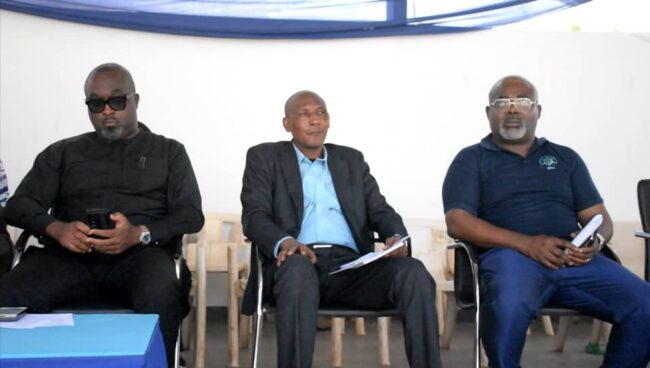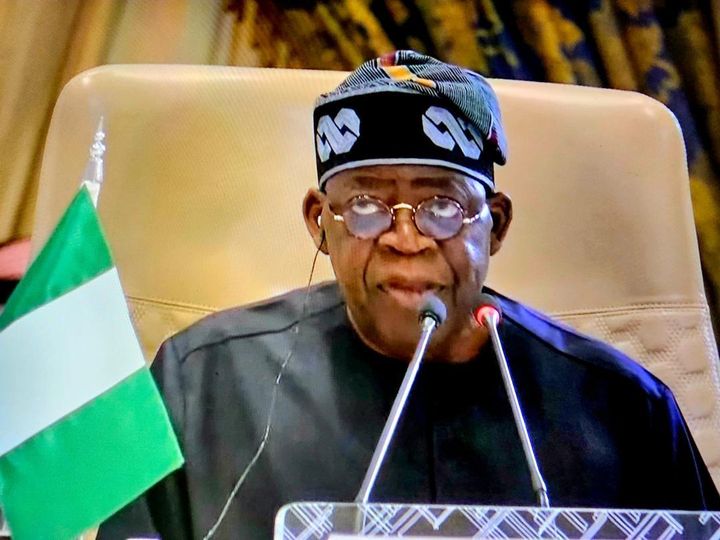Maritime
Billionaire Ross Raises $100 Million to Expand Shipping Bet

LONDON – Wilbur Ross, the billionaire investor in struggling industries, raised $100 million to buy ships hauling coal, iron ore and grains, betting that accelerating growth in emerging markets will boost trade.
WL Ross & Co. and its partners ordered four Ultramax vessels with options for four more, Ross said by phone today. He declined to name the other investors in the venture, Nautical Bulk Holdings Ltd. The ships will be delivered in 2015 by China’s Jiangsu Hantong Ship Heavy Industry Co.
The 65,000 deadweight-ton ships will have fuel-efficient designs and be equipped with their own cranes, allowing them to collect and unload cargoes in less-developed ports, Ross said. The company may buy more ships, he said. Ross’s company also has stakes in tankers that haul refined fuels and liquefied petroleum gas. Private equity firms invested $4.32 billion in shipping so far this year, the most since at least 2008, according to Marine Money, an industry researcher and publisher.
 “Since we think a lot of the demand for dry commodities is going to develop in the emerging markets, we think they’re well-suited to that,” Ross said by phone. Shipping rates will recover by the time the new ships are built, he said.
“Since we think a lot of the demand for dry commodities is going to develop in the emerging markets, we think they’re well-suited to that,” Ross said by phone. Shipping rates will recover by the time the new ships are built, he said.
The Baltic Dry Index, a measure of costs to ship iron ore, coal and grains, more than doubled to 1,581 this year, rebounding from the lowest annual average since at least 1993, according to the Baltic Exchange, the London-based publisher of freight rates. World trade in dry-bulk commodities will expand 5 percent to a record 4.5 billion metric tons next year, estimates Clarkson Plc, the world’s largest shipbroker.
New Vessels
Rates slumped since 2008 as owners ordered too many ships before the global recession. Outstanding contracts for new bulk carriers equal 18 percent of the existing fleet, down from as much as 74 percent in 2009, according to data from IHS Maritime, a Coulsdon, England-based research company.
The cost of a new China-built Supramax, a dry-bulk vessel typically fitted with cranes and in the same size range as the ones Ross ordered, rose 5.7 percent to $28 million this year, according to Simpson, Spence & Young Ltd., the world’s second-largest shipbroker. That’s heading for the first annual gain since 2010 and the biggest since 2007.
Ship owners spent $13.1 billion on new bulk carriers as of September, compared with $9.6 billion in all of 2012, Clarkson data show. Investment in Handymaxes, also in the same size range as Ross’s Ultramaxes, more than doubled to $4.4 billion, according to the shipbroker’s figures.
Shares Gaining
The 12-member Bloomberg Dry Ships Index rallied 22 percent this year, compared with a 16 percent advance in the MSCI All-Country World Index of equities. The shipping index is still 83 percent below its 2007 record.
Ross was part of a group of investors who spent $900 million on 30 oil-product tankers in 2011. His company also has a majority stake in Navigator Holdings Ltd., which controls one-third of the world’s midsize LPG carriers.
Economic growth in developing countries will accelerate to 5.1 percent in 2014 from 4.5 percent this year, compared with 3.6 percent globally, the International Monetary Fund estimates. Imports will expand 5.9 percent and exports will grow 5.8 percent, compared with 4.0 percent and 4.7 percent in advanced economies, according to the Washington-based lender.
World trade in iron ore, the biggest commodity transported by sea after crude oil, will rise 7 percent to 1.27 billion tons in 2014, with China accounting for 88 percent of the increase, Clarkson estimates. Shipments of coal used for power generation, the next-largest cargo, will advance 4 percent to 897 million tons, with Chinese and Indian demand amounting to 62 percent of the gain, data show.
– BLOOMBERG
Maritime
Shettima Urges Stronger Synergy Among MDAs For Nigeria’s Business Environment

The Vice President of the Federal Republic of Nigeria, Senator Kashim Shettima, has called on Ministries, Departments, and Agencies (MDAs) of government, as well as members of the Presidential Enabling Business Environment Council (PEBEC), to deepen collaboration so as to foster a more conducive environment for doing business.
He made the assertion in Abuja, at the closing session of the PEBEC Retreat for heads of MDAs and MDA Reform Champions.
According to Sen Shettima the overarching goal is to ensure Nigeria remains a preferred destination for investors.
ALSO READ: SNEPCo, Former MD Aiboni Win Energy Times’ Awards
He stated, “This retreat was convened by the Presidential Enabling Business Environment Council (PEBEC), an institution I am privileged to chair, not just to review reform progress, but to deepen something even more critical: synergy.
The business of government is too complex to be solved in silos. We cannot afford the luxury of working in isolation, while the problems we are tasked to solve are increasingly intertwined.”
Among the attendees was the Director General of the Nigerian Maritime Administration and Safety Agency (NIMASA), Dayo Mobereola, who commended PEBEC for organizing the retreat.
He noted that it provided a valuable platform for peer review and constructive engagement among Federal Government appointees, aimed at improving institutional performance and reform delivery.
Maritime
NIMASA Dangles Opportunities Before Private Investors At Enugu Int’l Trade Fair

The Nigerian Maritime Administration and Safety Agency (NIMASA) has urged the private sector to seize emerging opportunities in Nigeria’s Blue Economy, particularly in the maritime sector.
The Director General of NIMASA, Dr. Dayo Mobereola made the call at the ongoing 36th Enugu International Trade Fair.
The NIMASA DG who was represented by the Deputy Director in the Planning Research and Data Management Service Department of NIMASA, Umar Mohammed highlighted NIMASA’s commitment to implementing the Renewed Hope Agenda of the Federal Government, while also emphasizing the need for inclusive economic growth through indigenous participation in domestic and international shipping.
ALSO READ: Shell Commends Oloibiri Lecture Series As Platform For Change
“To unlock the full potential of our maritime economy, NIMASA is pursuing an integrated development strategy that will support indigenous operators in ship acquisition, establish a National Carrier Line, and create maritime training institutions for world-class seafarers,” he stated.
He noted that the Agency is also implementing a Public Sector Cargo Support Programme aimed at creating a captive freight market for local carriers and reducing the dominance of foreign shipping lines in Nigeria’s seaborne trade.
Accordingly, he said the Agency’s strategic initiatives are being driven through public-private partnerships to ensure sustainability and long-term impact.
“Therefore, we are inviting investors and entrepreneurs to collaborate with us in developing a robust and competitive maritime sector that will create jobs and boost the national economy,” he added.
The NIMASA DG through his representative used the opportunity to express appreciation to the Governor of Enugu State, Dr. Peter Ndubuisi Mbah, and the leadership of the Enugu Chamber of Commerce, Industry, Mines and Agriculture (ECCIMA) for hosting the trade fair, which he described as a vital platform for business networking and investment drive.
The NIMASA plays a key role in promoting the Blue Economy in Nigeria with its promotional responsibilities, being part of its mandate to regulate maritime activities and ensure sustainable use of ocean resources.
Maritime
Nigeria Moves For Joint Maritime Task Force For Gulf Of Guinea

Nigeria’s President, Bola Ahmed Tinubu has tabled a motion for the establishment of a combined maritime task force to enhance security in the Gulf of Guinea before the Africa Union Peace and Security Council (AUPSC).
He made the call at the 38th Ordinary Session of the Assembly of the African Union (AU) Heads of State and Government in Addis Ababa, Ethiopia, on Sunday.
To give effect to the motion, President Tinubu expressed Nigeria’s readiness to host the task force’s headquarters in Lagos.
ALSO READ: Tinubu Calls For African Credit Rating Agency
President Tinubu conveyed Nigeria’s position as the AU considered the report on the AUPSC, focusing on peace and security in Africa, and the biennial report on the implementation of the Master Roadmap of Practical Steps to Silence the Guns in Africa (2023-2024).
The statement was delivered on behalf of President Tinubu by the Minister of Foreign Affairs, Ambassador Yusuf Tuggar.
“The time has come for the African Union Peace and Security Council to prioritise the creation of a Combined Maritime Task Force for the Gulf of Guinea.
“I wish to announce that Nigeria would like to host the headquarters of the task force in Lagos,” he said.
Nigeria’s recommendation of a maritime task force comes on the same day that it signed an agreement with the AU to provide Strategic Sea Lift Services for AU peace support operations, natural disaster support, humanitarian actions, and personnel movement.
It was gathered that Nigeria’s defence minister, Badaru Abubakar, signed the agreement.
Under the agreement, the Nigerian Navy will provide a vessel for the operations on a cost-recovery basis.
Nigeria’s Attorney-General and Justice Minister, Prince Lateef Fagbemi, Minister of Foreign Affairs, Ambassador Yusuf Tuggar, Naval Chief, Vice Admiral Emmanuel Ikechukwu Ogalla, and Director-General of the Nigerian Intelligence Agency, Ambassador Muhammed Muhammed, witnessed the agreement signing.
Ambassador Bankole Adeoye, the AU Commissioner for Political Affairs, Peace and Security, signed for the AU.
President Tinubu expressed satisfaction that the AUPSC had already adopted the outcomes of a high–level meeting, including the decision to upgrade the Nigerian National Counter-Terrorism Centre to a Regional Counter–Terrorism Centre.
He also appreciated the Peace and Security Council’s decision to renew the mandate of the Multinational Joint Taskforce, addressing the twin challenges of terrorism and violent extremism in the Lake Chad Region.
On Libya, the Nigerian leader expressed concern that the instability in the North African country has continued to worsen security challenges in the Sahel and called on the Assembly to back initiatives to restore law and order.
“The Sahel cannot enjoy peace as long as Libya does not,” he warned.
President Tinubu highlighted the severe insecurity affecting countries grappling with democratic transition, including Sudan, Burkina Faso, Mali, Niger, South Sudan, and Gabon.
“It would not be out of place to explore the possibility of extending the inherent benefits of UN Security Council Resolution 2719 to support AU Peace Support Operations,” he said.
In doing so, he added that the AU must try to prevent the increasing incursion of extra-continental forces, including private military companies, into African security matters.
President Tinubu welcomed the progress in operationalising the African Standby Force, reiterating Nigeria’s support.
He appealed to all AU member countries and delegations to show the necessary flexibility and allow the draft MoU on the operationalisation of the standby force to be adopted.









